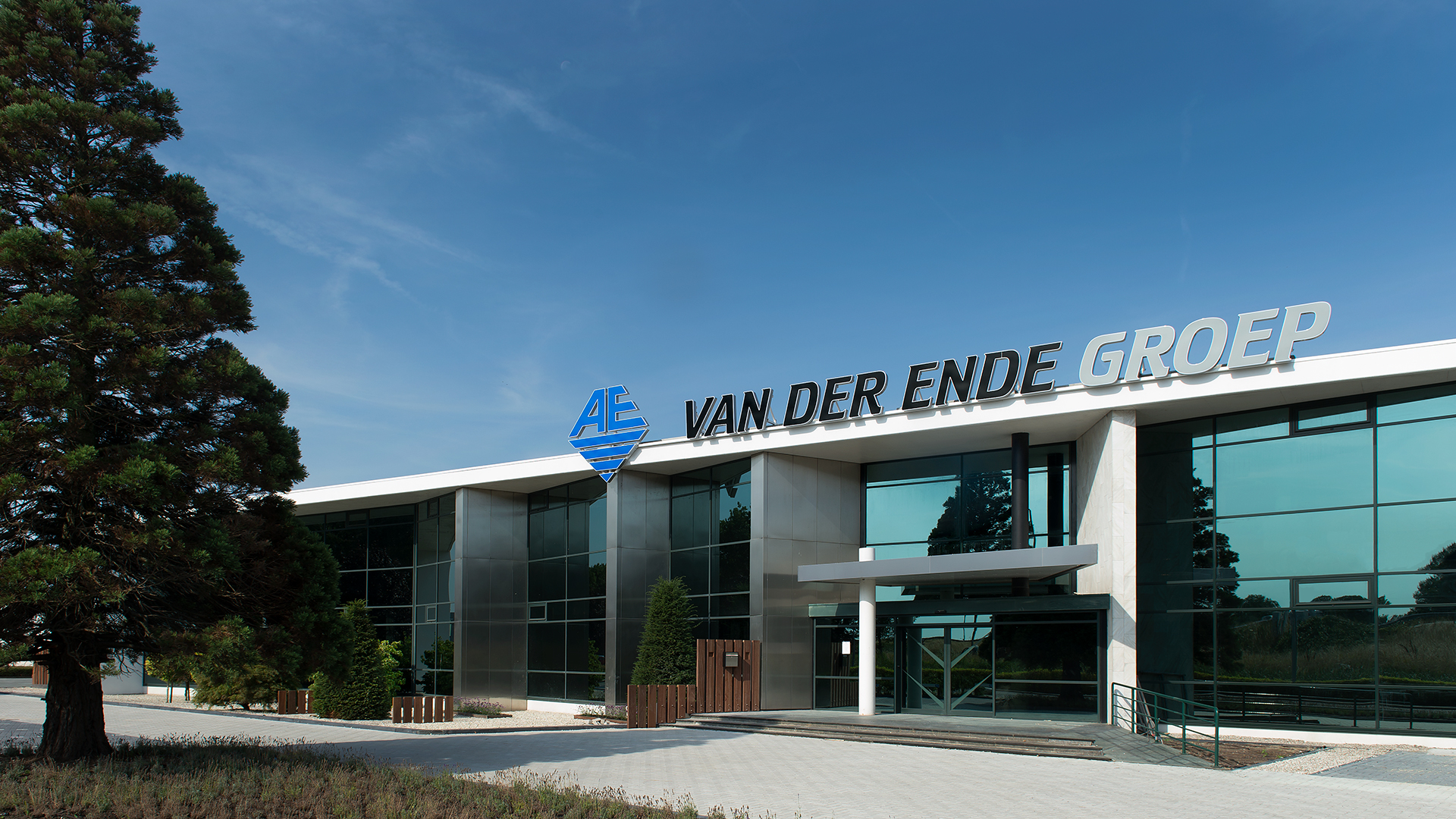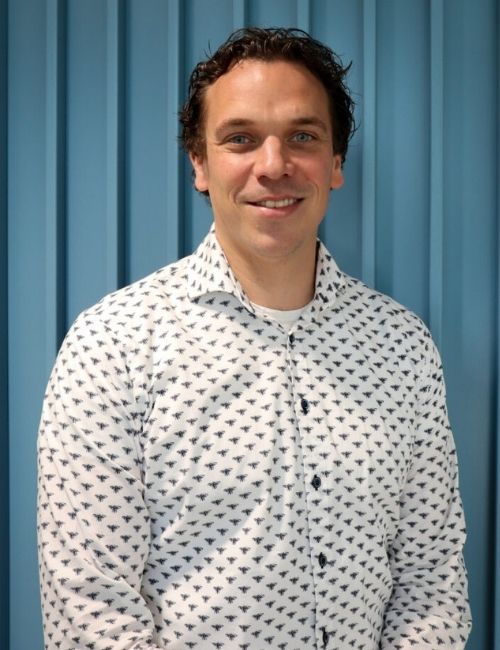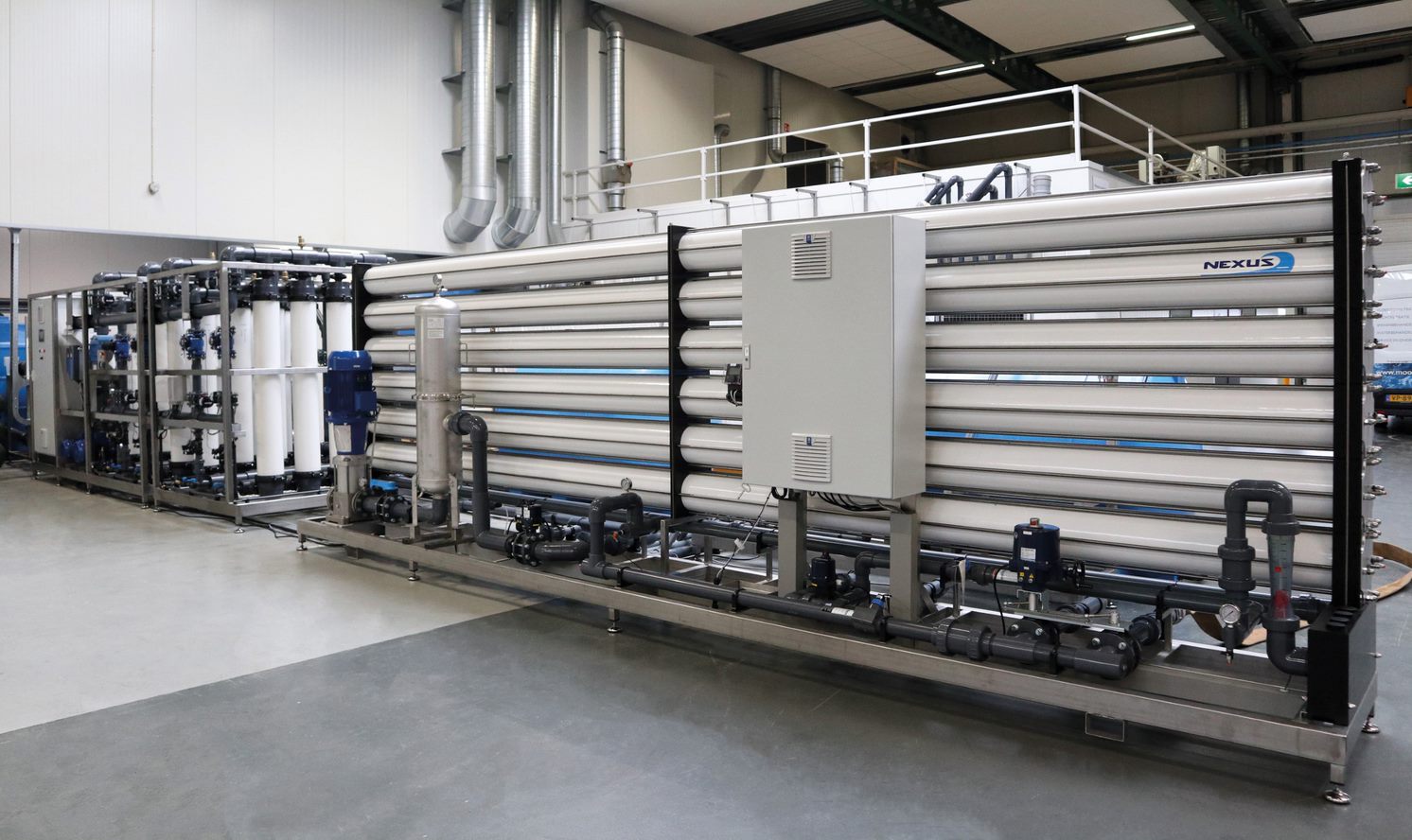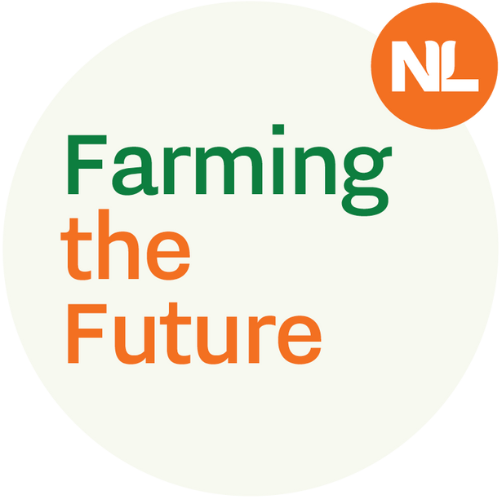Lex van der Ende, Van der Ende Groep’s managing director, is proud – and for good reason. The company has been the source of various innovations, not least the Airmix ventilation and circulation system and the Poseidon, a technique that extracts sodium from drain water while retaining other nutrients. Lex says: “We don’t look at what is already on the market. We look at specific problems and create the best solutions.”

The Van der Ende Groep was founded by Lex’s father in Westland, the region at the heart of Dutch greenhouse innovation. Although the company’s roots can be traced back 40 years, it retains the mindset of an eager start-up. “We approach every challenge from a different perspective,” says Lex. “This has led to many successful products over the years.” When asked about the brand values of the Van der Ende Groep, Lex emphasises innovation, independence and service as well as collaboration, knowledge and quality.
“I inherited a pioneering mentality from my father. Some 30 years ago, he and a colleague developed the Enbar LVM technique and this product still sells well today. Whenever we are able to offer a client added value, we do, which goes without saying. Innovation is part of our DNA. In the past year, we have been focusing more on climate, energy and water solutions because these themes are important to our investors and to growers worldwide.”
“We are an international company, exporting directly and indirectly to more than 100 countries. DGD is ideal for building our worldwide network and for developing contacts with investors and government agencies. We are typically a bit farther down the supply chain than turnkey players such as greenhouse builders. Our solutions are used throughout the world and we regard DGD as a vehicle for fast and efficient international connection.”
“Yes. As an international platform, DGD is in the pioneering phase. We are currently active in China, Kazakhstan and the Middle East. Every day, our projects are becoming more concrete and various MOUs have already been signed. Our goal is to ensure that wherever in the world a greenhouse is built, all horticulture technology will come from the Netherlands. Globally, attention is turning to local food production, food security and food safety. The coronavirus crisis has accelerated this trend. Also, as a result of factors such as climate change, there is growing interest in high-tech covered cultivation.”
“Of course, every region has its specific challenges, but water is a common theme. Problems with water management are becoming more urgent: how to deal with water surplus and water scarcity and how to ensure water quality are important global issues. We have solutions for these challenges, which we have often created ourselves. For example, to address water surplus issues, we have an entire fleet of pumps. We have also developed and produced filtration and water treatment systems. That our machine for South Korea (see article below) was almost shipped by air demonstrates how acute these problems can be.”
“We developed a modular air treatment technique for both existing and newly built greenhouses, another example of our customised approach. The Airmix technique produces good results with a relatively small investment. As this technique requires a different way of thinking and cultivating, we support growers with knowledge and project assistance. By using this approach, we have been able to sell more than 250 hectares in various countries in only three years involving a range of crops, including 20 hectares of cannabis and 15 hectares of cucumbers and tomatoes. Growers of roses, chrysanthemums and strawberries also believe in our concept. And we have only just begun. We continue to develop our Airmix system and see an increasing number of growers embracing it. Naturally, we are very proud of this.”
“We deliver manageable products and systems. Everything is engineered to be both shippable and scalable. With good instruction videos, drawings and remote customer support using virtual reality, we have been able to sell products abroad – in South Korea (see box) and in other countries – and help them become operational. For the installation of our water treatment system in South Korea, we collaborated with a local installer remotely. Thanks to our engineering style and other measures, we have been able to continue our work during the coronavirus period. Online communication has obviously played an important role in this.”
“Yes, and also future-oriented. As the subject matter is often complex, installers should have a strong technical foundation and knowledge of mechanics, electricity, water and applications. Now that we are able to collaborate with local employees more easily, we have expanded our reach abroad. And this creates new opportunities. Moreover, we don’t need to travel as much. We now also have a water treatment system that uses artificial intelligence to measure water quality automatically and adjust the settings as needed. We are therefore breaking barriers and approaching a circular situation.”
“Everyone is trying to play a role in the transition – it is a very topical issue. If we look at our water division, for instance, we have already come a long way in approaching zero-emission solutions. Sustainability is important to us. We always want to provide the best economic value for the customer and sustainability is part of the equation.”

Case: water treatment system South-Korea | 3 min read
“The treatment of surface water is a risk few are willing to take.”
It was a dry summer in South Korea. A client cultivating ten hectares of tomatoes there had a sodium problem and a shortage of irrigation water. To deal with the irrigation issue, they wanted to use surface water from a nearby river, but there was a complication: the water required treatment. The Van der Ende Groep offered a unique solution which, even in the coronavirus period, was installed remotely and in record time.
Ruud Schulte, water treatment manager, collaborated with the client – a South Korean installation engineer – to come up with a solution for this complex problem. He says: “We met the installation engineer three years ago at GreenTech in Amsterdam. In spring, he requested a water treatment system because his client, a tomato grower, had a sodium problem and a shortage of irrigation water. That’s how it started.”
What followed was an inventory of the client’s latent needs: what is the quality of the water, what are the goals of the grower and which water treatment system would be the best fit. As we were dealing with river water as the source, an extra filtration step was required.
Ruud Schulte says: “In nine out of ten cases, irrigation water comes from underground. This water is clean and of the best quality. River water is more contaminated than groundwater, so you need more than just a standard sand filter and reverse osmosis. We therefore applied several different filtration techniques to ensure that all the undissolved particles – including bacteria and viruses – were removed from the water.”
“That’s what you get with surface water treatment and it’s a risk few are willing to take,” adds Lex van der Ende, “which is understandable as you have to deal with all sorts of contamination, including biological. We had to develop an entire series of techniques, because the whole nursery depended on it – after all, we are dealing with food here.”
Ruud Schulte: “The client was over the moon. Time was of the essence for him. The initial plan was therefore to send the machine by air, but because of the coronavirus crisis, the cost of air freight had doubled. As this was a bridge too far for the client, the machine was shipped by sea instead. It arrived at the grower’s location several weeks later on a Friday morning and the installer worked the entire weekend. On Tuesday afternoon, we were in contact with the installer and tested whether the motors were turning properly and the valves were opening and closing entirely and so on. We checked everything from A to Z.
Then, step by step, we operationalised the system. Everything was done remotely. The installer was wearing virtual reality glasses, so we could see everything that he did and assist as required. The machine was up and running within a week and we continue to monitor the system remotely. The client was so enthusiastic about our solution that he’s already requested a new project.”

| Managing Director: | Lex van der Ende |
| Annual sales: | €30 million+ |
| Number of employees: | 120 |
| Market-focus: | high-tech greenhouse technology, global (active in more than 100 countries) |
| Activities: | service, wholesale, design, engineering and production |
| Products: | high-grade pumps, water treatment and filtration systems, horticultural fans, mixers and many other products for international greenhouse cultivation |
| More information: | vanderendegroup.com |
Europa 1
2672 ZX Naaldwijk
The Netherlands

All rights reserved 2025